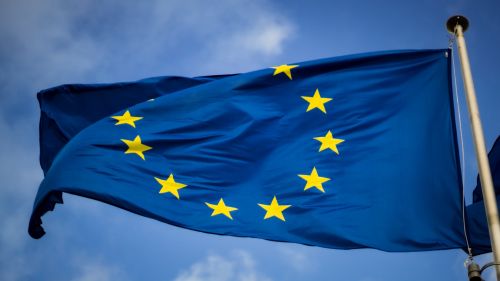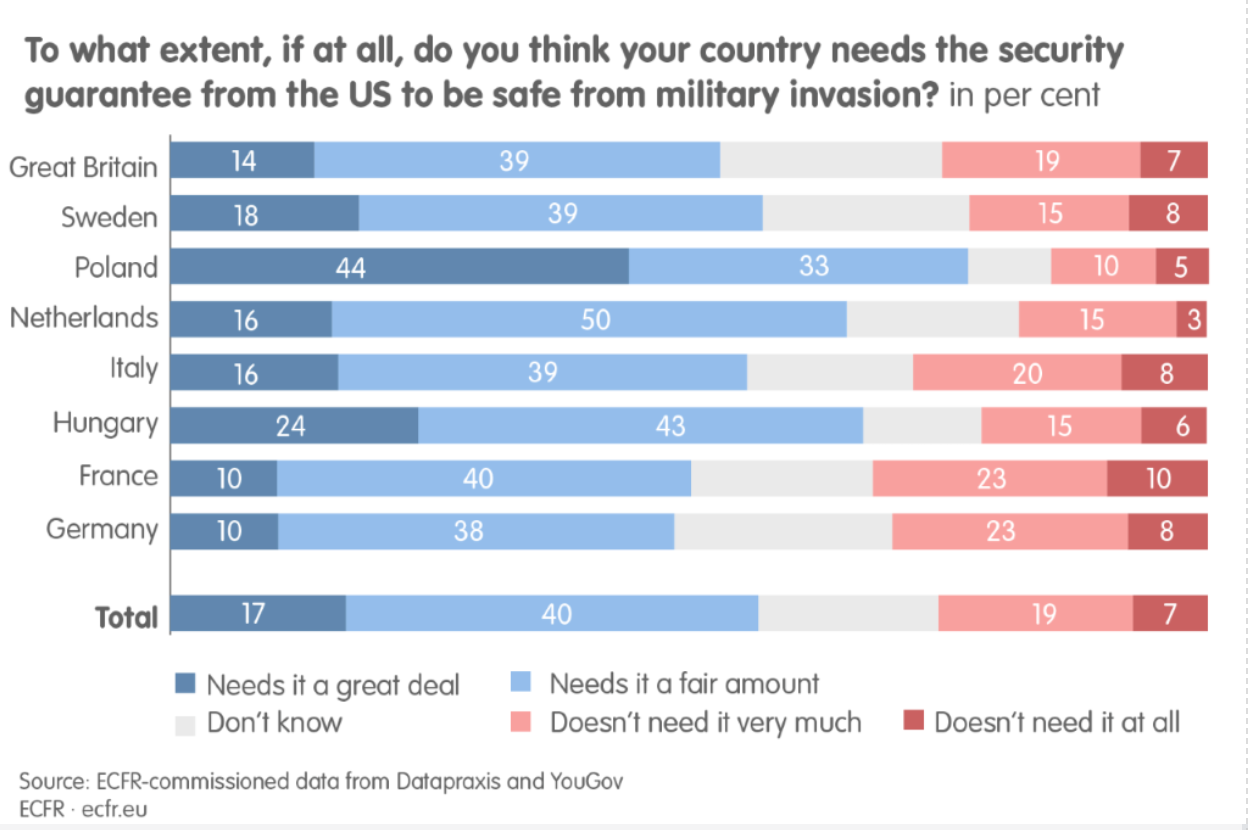Will Europeans Trust the US After the Trump Presidency?

Dina Smeltz discusses European opinion of the US post-Trump.
It should be no shock to readers that newly-inaugurated President Biden will have an uphill climb in restoring European trust in the United States. Over the past four years, both Pew and Gallup surveys have shown that the US image in Europe plummeted to new lows during the four years of former President Trump’s tenure.
And now a newly released European Council on Foreign Relations (ECFR) survey conducted among publics in 11 European countries shows that majorities seem to question the credibility of the United States defense commitment to Europe and see a need to “look after” their own defenses. Moreover, the survey results suggest that Europeans see value in prioritizing their own national interests ahead of ties to the United States, expect China to become a greater power than the US in the next ten years, and most do not want their country to take a side in a dispute between the United States and China or Russia. The implications for the Biden administration, write Ivan Krastev and Mark Leonard, include potential unwillingness on the part of European governments to use political capital to make major concessions to Washington in the absence of European public support.
Key Findings
Majorities in Europe Expect Biden Will Improve Bilateral Relations
The survey, carried out by Datapraxis and YouGov in November and December 2020, includes responses from more than 15,000 people in Denmark, France, Germany, Great Britain, Hungary, Italy, the Netherlands, Poland, Portugal, Spain and Sweden. On average across all countries, majorities believe the outcome of the US election will be positive for their own country (53%) and the European Union (57%), and also that the world is in a worse place because of Trump’s presidency (54%). Nearly two in three disagree that “America was on the right path with Trump, and it has taken a wrong turn by electing Biden (62%; only 15% agree).” Pew surveys conducted in France, Germany, and the United Kingdom around the same time period just after the US elections found a slight uptick from previous ratings of the United States, but the ratings were still look warm (40% favorable in Germany, 50% in France and 51% in the UK).
Six in Ten Europeans Say US Political System Broken
President Biden takes office in the wake of direct and indirect challenges to the American political system in recent months. At the time of the survey, which took place before the January 6 riots at the US Capitol, 61 percent of Europeans overall thought the US political system was somewhat or very broken, with only 27 percent saying it worked somewhat or very well. By and large, however, only a minority of Europeans (31%) expect the US be consumed by its internal problems and divisions. Instead, roughly half (49%) say the US will repair its internal problems and divisions and will invest in solving global issues like climate change, Middle East peace, European security and relations with China.
Europeans Want US Security Guarantee, But Can They Rely on the US?
When it comes to regional security, Europeans consider the US security guarantee as necessary, but they aren’t sure the United States is reliable. Six in ten across the countries, including about half in Germany and France and larger majorities elsewhere, say their country needs the United States at least a fair amount to be safe from military invasion. No more than a quarter in each country (except 44% in Poland) believe that their country needs the US security guarantee a great deal.
At the same time, majorities of at least six in ten across all eleven countries agree that they cannot always rely on the US to defend them and so they need to invest in European defense. No more than 14 percent in any individual country agrees instead that “The US will always protect Europe, so we don’t have to worry so much about our own defense capabilities.

Challenges to US Image from Foreign Policy Swings
The authors of the ECFR report take these results as a signal that that “the transatlantic relationship in the 2020s is seen as much less existential in both Europe and America.” But this prognosis may be overstated. Other surveys have shown that for the most part, NATO is viewed favorably across member states, including the United States. The November-December Pew surveys show that majorities of the German (79%), French (72%), and British (65%) publics have confidence in Biden to do the right thing in world affairs and are optimistic about their country’s relations with the United States (84% France, 84% Germany, 72% UK). And Chicago Council Surveys have shown, that if anything, Americans have grown more appreciative of allies and alliances over the past four years. That said, the ECFR survey suggests that the last 4 years of American unpredictability, unilateralism and criticism of our allies may have had an impact European confidence in the US role in Europe (it’s hard to say for sure since no previous survey results were included for comparison).
The Biden team takes the reins at a time when the Trump toll on the US brand in Europe is still raw. Taking a longer view, the dramatic swings in US foreign policies and US international commitments from administration to administration could also weaken European trust in the United States as a solid partner. Most Europeans will collectively sigh from relief that Donald Trump is out of the White House. In rebuilding ties, both Europe and the Biden administration could use the European momentum for more self-reliance, evidenced by the ECFR poll, into building a stronger and forward-looking transatlantic alliance.

